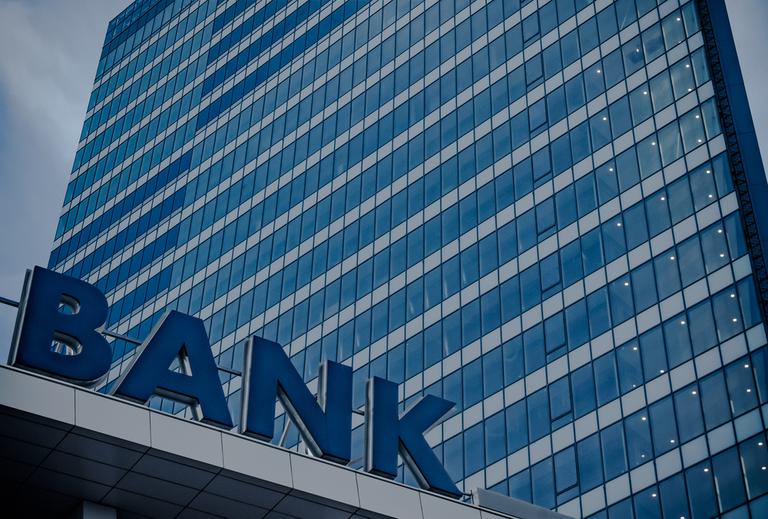Blogs
Three Signs that a Commercial Bank is About to Say "No" to Lending Capital
Part one of a two-series blog that gives you the advice you need to be proactive in a business-critical situation.

When requesting a loan, most companies opt for working with their existing commercial bank. This often appears to be the best and easiest choice. Commercial banks typically offer the most competitive interest rates, and a strong working partnership between the two entities is already established.
However, a commercial bank tends to be very conservative with its loans. It is highly regulated, internally and externally, to ensure that the bank is judicious with its funds and that it operates with minimal risk. Consequently, this risk-averse tendency means that there can come a time when the bank will decline a company’s request for capital.
Why would a commercial bank decline a request?
A bank could refuse a company’s request or try to remove a company from its client list for a variety of reasons. First, it may be that the bank considers a company too risky of a client. When a company’s inventory is growing larger than accounts receivable or if its working capital timeline starts expanding, it will signal to the bank that the company may ultimately be unable to repay the loans it has taken out.
Second, the bank could refuse a request because it is simply not able to lend more capital. Because of the way a bank’s covenants or formulas work, even if a company’s request is valid and necessary, the bank’s activity may be too restricted to offer funds.
Third, a company may not be profitable as a client. This typically occurs with good clients who have sound credit, and these companies may be surprised to see the bank decline their request. However, they may bring in limited returns to the bank, because their activity is limited to withdrawing and repaying loans without purchasing any of the bank’s other services.
It is not in the bank’s best interest to solely lend money, and even stable, profitable companies can be forced out or asked to leave. Predicting when this will be can be challenging, but there are three common signs to watch for.
1. Unknown people show up unannounced in interactions
At some point, an unfamiliar person from the bank will be added to a call, meeting, or email chain. While this may seem innocuous, this is a key indicator that a company’s standing with the bank is in jeopardy. This unknown person is oftentimes a member of the bank’s credit group or work-out group who is concerned about the company as a client. They are there to monitor the company’s activity, advise on how fit the company is to be a client, and potentially help move the company off the bank’s client roster.
2. The bank refuses even small requests
When a company calls its bank about a reasonable increase in its loan or change in a covenant, the bank may unexpectedly refuse. Internally, the bank is already preparing to retire the company from its client list. To avoid adding more paperwork or making the exit process more complicated, the bank has chosen to begin by refusing smaller requests to slowly taper off the account.
3. The bank becomes less responsive
When calls and emails go unanswered, a company can be almost certain that it is in the process of being retired as a client via the bank’s work-out team. The bank is hoping that the company will grow frustrated with the lack of responsiveness and find a new bank on its own, so the bank doesn’t have to go through the lengthy and difficult process of formally rejecting a company.
Do not wait until a commercial bank declines lending capital
As a rule, commercial banks want to keep clients. Clients are expensive and time-consuming to obtain, and replacing an “exited” client requires finding another client of equal or better quality from some other bank. Consequently, most banks won’t deliver a “no” until it is a hard “no” — and there’s no changing it at that point. To complicate matters further, that final “no” often comes when companies most need help with liquidity — and therefore lack the time to find another option. Any of these warning signs are a clear indicator that a company should take action right away. Should the company decide to wait, it will run short of liquidity and options, and it will lose precious time to finding and moving to another bank.
In this uncertain economic and political environment, companies exposed to the supply chain disruption, labor shortages, and cost inflation should be aware of the warning signs of a deteriorating bank relationship and of alternatives to banks. Being proactive can help companies avoid unnecessary stress and disruptions to its operations.
Read Part two, “What to Do if a Commercial Bank Refuses to Lend Capital”: two options that can help guide you after your commercial bank rejects your request of more working capital, here.
Meet Our Author

Jay Krasoff
Founder | Managing Director
Mr. Krasoff is a founder of Chiron Financial and is responsible for the strategic direction of the firm and corporate growth.